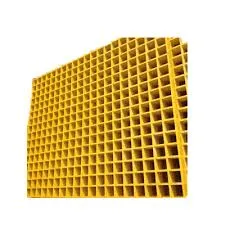
-
 Afrikaans
Afrikaans -
 Albanian
Albanian -
 Amharic
Amharic -
 Arabic
Arabic -
 Armenian
Armenian -
 Azerbaijani
Azerbaijani -
 Basque
Basque -
 Belarusian
Belarusian -
 Bengali
Bengali -
 Bosnian
Bosnian -
 Bulgarian
Bulgarian -
 Catalan
Catalan -
 Cebuano
Cebuano -
 China
China -
 China (Taiwan)
China (Taiwan) -
 Corsican
Corsican -
 Croatian
Croatian -
 Czech
Czech -
 Danish
Danish -
 Dutch
Dutch -
 English
English -
 Esperanto
Esperanto -
 Estonian
Estonian -
 Finnish
Finnish -
 French
French -
 Frisian
Frisian -
 Galician
Galician -
 Georgian
Georgian -
 German
German -
 Greek
Greek -
 Gujarati
Gujarati -
 Haitian Creole
Haitian Creole -
 hausa
hausa -
 hawaiian
hawaiian -
 Hebrew
Hebrew -
 Hindi
Hindi -
 Miao
Miao -
 Hungarian
Hungarian -
 Icelandic
Icelandic -
 igbo
igbo -
 Indonesian
Indonesian -
 irish
irish -
 Italian
Italian -
 Japanese
Japanese -
 Javanese
Javanese -
 Kannada
Kannada -
 kazakh
kazakh -
 Khmer
Khmer -
 Rwandese
Rwandese -
 Korean
Korean -
 Kurdish
Kurdish -
 Kyrgyz
Kyrgyz -
 Lao
Lao -
 Latin
Latin -
 Latvian
Latvian -
 Lithuanian
Lithuanian -
 Luxembourgish
Luxembourgish -
 Macedonian
Macedonian -
 Malgashi
Malgashi -
 Malay
Malay -
 Malayalam
Malayalam -
 Maltese
Maltese -
 Maori
Maori -
 Marathi
Marathi -
 Mongolian
Mongolian -
 Myanmar
Myanmar -
 Nepali
Nepali -
 Norwegian
Norwegian -
 Norwegian
Norwegian -
 Occitan
Occitan -
 Pashto
Pashto -
 Persian
Persian -
 Polish
Polish -
 Portuguese
Portuguese -
 Punjabi
Punjabi -
 Romanian
Romanian -
 Russian
Russian -
 Samoan
Samoan -
 Scottish Gaelic
Scottish Gaelic -
 Serbian
Serbian -
 Sesotho
Sesotho -
 Shona
Shona -
 Sindhi
Sindhi -
 Sinhala
Sinhala -
 Slovak
Slovak -
 Slovenian
Slovenian -
 Somali
Somali -
 Spanish
Spanish -
 Sundanese
Sundanese -
 Swahili
Swahili -
 Swedish
Swedish -
 Tagalog
Tagalog -
 Tajik
Tajik -
 Tamil
Tamil -
 Tatar
Tatar -
 Telugu
Telugu -
 Thai
Thai -
 Turkish
Turkish -
 Turkmen
Turkmen -
 Ukrainian
Ukrainian -
 Urdu
Urdu -
 Uighur
Uighur -
 Uzbek
Uzbek -
 Vietnamese
Vietnamese -
 Welsh
Welsh -
 Bantu
Bantu -
 Yiddish
Yiddish -
 Yoruba
Yoruba -
 Zulu
Zulu
reinforced plastic pipe
The Advantages and Applications of Reinforced Plastic Pipes
Reinforced plastic pipes (RPP) have revolutionized the piping industry by offering a lightweight, durable, and cost-effective solution for various applications. Made from a combination of polymers and reinforcing materials—typically fiberglass or other composites—RPP has become increasingly popular in industries such as construction, agriculture, chemical processing, and water management. In this article, we will explore the advantages and applications of reinforced plastic pipes and why they are becoming a go-to choice for many engineers and designers.
Advantages of Reinforced Plastic Pipes
1. Durability One of the primary advantages of reinforced plastic pipes is their incredible durability. These pipes are resistant to a wide range of chemicals, making them suitable for transporting corrosive substances. Additionally, their ability to withstand extreme temperatures—ranging from sub-zero conditions to high heat—ensures that they can perform well in various environments.
2. Lightweight Compared to traditional materials such as steel or concrete, reinforced plastic pipes are significantly lighter. This attribute simplifies handling and installation, reducing labor costs and time on-site. Contractors appreciate the ease of transportation and the minimal need for heavy equipment during installation.
3. Flexibility and Adaptability RPP can be manufactured in various diameters and wall thicknesses, allowing for tremendous flexibility in design. This adaptability makes it easier to customize solutions for specific projects, whether for municipal water systems or complex industrial applications. The resistance to impact and bending is another benefit, as it allows the pipes to accommodate changes in the environment without breaking.
4. Cost-effective Although the initial cost may be similar to traditional piping materials, the long-term benefits of RPP can lead to significant savings. Their resistance to corrosion and reduced maintenance needs mean lower lifecycle costs. Moreover, the fast installation times associated with RPP often translate to lower project costs overall.
5. Eco-friendly Many reinforced plastic pipes are manufactured with sustainability in mind. They can be produced with recycled materials, and their longevity means that they do not need to be replaced as often as conventional materials, reducing waste. Additionally, their lightweight nature helps lower the carbon footprint associated with transportation.
reinforced plastic pipe

Applications of Reinforced Plastic Pipes
1. Water Supply Systems RPP is widely used in municipal water systems, where resistance to corrosion and chemical leaching is crucial. The pipes are ideal for transporting potable water and can also handle wastewater effectively.
2. Agriculture In agriculture, reinforced plastic pipes serve as irrigation systems and drainage pipes. Their ability to withstand environmental stressors while remaining lightweight makes them an excellent choice for modern agricultural practices that rely on efficient water management.
3. Chemical Applications The chemical industry frequently utilizes RPP for pipelines that transport dangerous substances. Their resistance to corrosion and chemical damage ensures safety and reliability in processes involving hazardous materials.
4. Telecommunications RPP is increasingly being utilized in telecommunications infrastructure. The lightweight nature of the pipes allows for easy installation of fiber optic cables, while their durability ensures minimal signal loss and protection from environmental factors.
5. Construction In construction, RPP is used for various applications, including underground utilities, stormwater management, and even as part of structural components in various building designs. The flexibility of RPP allows it to be integrated into complex structures with varying requirements.
Conclusion
Reinforced plastic pipes represent a significant advancement in piping technology, merging high performance with versatility. Their many advantages—ranging from durability and lightweight construction to long-term cost efficiency—make them an excellent choice for a wide range of applications across different industries. As the demand for sustainable and reliable infrastructure grows, RPP is likely to play a critical role in the future of piping solutions. Whether in municipal water systems, agricultural initiatives, or industrial processes, the adoption of reinforced plastic pipes is a trend worth watching.









